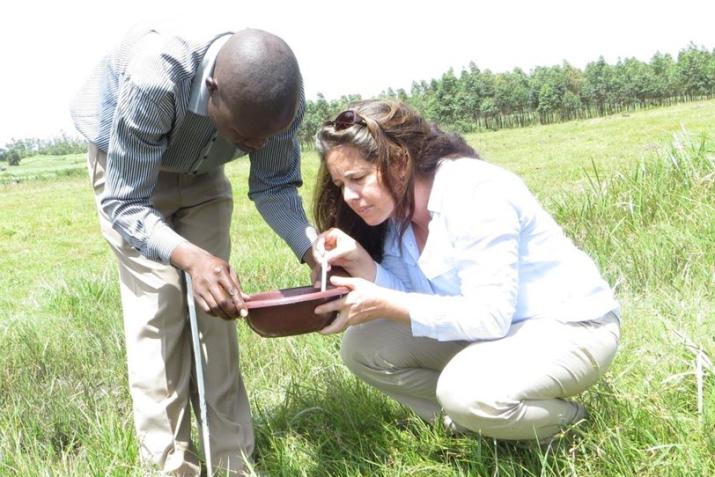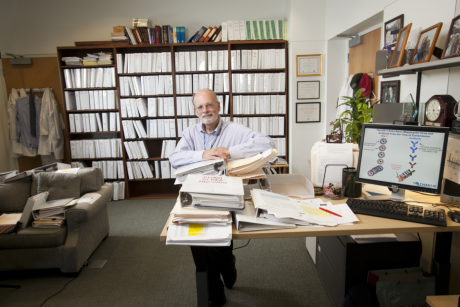
DGHI associate professor Wendy Prudhomme O'Meara and field entomologist Eric Nalianya make a video about larval surveillance to train other field entomologists.
Published December 5, 2017, last updated on May 5, 2022 under Research News
Wendy Prudhomme O’Meara, associate professor of medicine and global health at Duke, is one of more than 180 researchers and policymakers who have come forward with new recommendations to advance the effort to rid the world of malaria. The group, organized by the Malaria Eradication Scientific Alliance (MESA), is seeking to update the global research agenda for eradication of the disease, which was first published in 2011.
Since that time, significant milestones have been reached, including support for large-scale testing of the first approved malaria vaccine, improved insecticides, parasite-blocking genetic technologies and identification of markers in drug-resistant parasites. The scientists note, however, that progress has been matched with significant challenges, such as the expansion of drug and pesticide resistance, knowledge gaps and a lack of tools to prevent disease reintroduction.
In response, international teams of scholars wrote seven papers, collectively called “malERA Refresh” (malaria eradication research agenda), calling for improved innovation and integration among strategies to eliminate the disease. The papers have been published as a special collection in PLOS Medicine.
Prudhomme-O’Meara co-authored one of the articles, focused on characterizing the reservoir and measuring transmission of malaria.
“It was a remarkable experience to participate in the panel with so many brilliant and dedicated colleagues and discuss some of the most pressing scientific questions on the path to malaria elimination,” she said. “I’m hopeful that the process will help us coalesce resources around these key issues and ideas.”
The malERA Refresh papers also address research strategies and challenges in basic science and technologies; insecticide and drug resistance; diagnostics, drugs, vaccines and vector control; combination interventions and modelling; and health systems and policy research
“The value of malERA Refresh is that it focuses on problems that need to be solved, not only the technologies that could be developed,” said MESA chair Regina Rabinovich in a press release announcing the findings. “Transforming the mindset from implementation to problem solving is an essential task for the next generation of scientists and program implementers.”
Learn more:
- Read the press release.
- Read the malERA Refresh publications.

